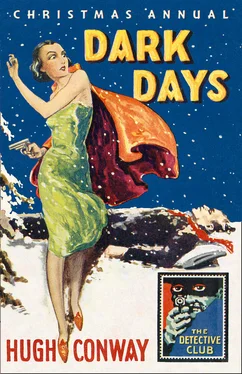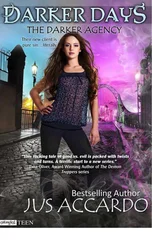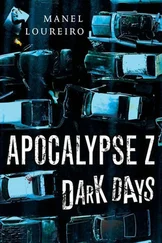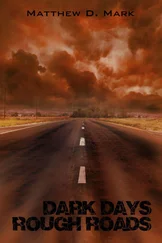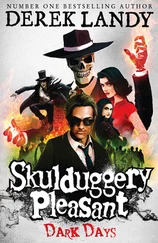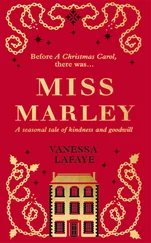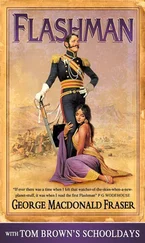And why? Ah! To know why you must sit with me as I sit lonely over my glowing fire one winter night. You must read my thoughts; the pictures of my past must rise before you as they rise before me. My sorrow, my hate, my love must be yours. You must, indeed, be my very self.
You may begin this retrospect with triumph. You may go back to the day when, after having passed my examination with high honours, I, Basil North, was duly entitled to write M.D. after my name, and to set to work to win fame and fortune by doing my best towards relieving the sufferings of my fellow-creatures. You may say as I said then, as I say now, ‘A noble career; a life full of interest and usefulness.’
You may see me full of hope and courage, and ready for any amount of hard work; settling down in a large provincial town, resolved to beat out a practice for myself. You may see how, after the usual initiatory struggles, my footing gradually grew firmer; how my name became familiar; how, at last, I seemed to be in a fair way of winning success.
You may see how for a while a dream brightened my life; how that dream faded, and left gloom in its place. You may see the woman I loved.
No, I am wrong. Her you cannot see. Only I myself can see Philippa as I saw her then—as I see her now.
Heavens! How fair she was! How glorious her rich dark beauty! How different from the pink-white and yellow dolls whom I have seen exalted as the types of perfection! Warm Southern blood ran through her veins and tinged her clear brown cheek with colour. Her mother was an Englishwoman; but it was Spain that gave her daughter that exquisite grace, those wondrous dark eyes and long curled lashes, that mass of soft black hair, that passionate impulsive nature, and, perhaps, that queen-like carriage and dignity. The English mother may have given the girl many good gifts, but her beauty came from the father, whom she had never known; the Andalusian, who died while she was but a child in arms.
Yet, in spite of her foreign grace, Philippa was English. Her Spanish origin was to her but a tradition. Her foot had never touched her father’s native land. Its language was strange to her. She was born in England, and her father, the nature of whose occupation I have not been able to ascertain, seems to have spent most of his time in this country.
When did I learn to love her? Ask me rather, when did we first meet? Even then as my eyes fell upon the girl, I knew, as by revelation, that for me life and her love meant one and the same thing. Till that moment there was no woman in the world the sight of whom would have quickened my pulse by a beat. I had read and heard of such love as this. I had laughed at it. There seemed no room for such an engrossing passion in my busy life. Yet all at once I loved as man has never loved before; and as I sit tonight and gaze into the fire I tell myself that the objectless life I am leading is the only one possible for the man who loved but failed to win Philippa.
Our first meeting was brought about in a most prosaic way. Her mother, who suffered from a chronic disease, consulted me professionally. My visits, at first those of a doctor, soon became those of a friend, and I was free to woo the girl to the best of my ability.
Philippa and her mother lived in a small house on the outskirts of the town. They were not rich people, but had enough to keep the pinch of poverty from their lives. The mother was a sweet, quiet, lady-like woman, who bore her sufferings with resignation. Her health was, indeed, wretched. The only thing which seemed likely to benefit her was continual change of air and scene. After attending her for about six months, I was in conscience bound to endorse the opinion of her former medical advisers, and tell her it would be well for her to try another change.
My heart was heavy as I gave this advice. If adopted, it meant that Philippa and I must part.
But why, during those six months, had I not, passionately in love as I was, won the girl’s heart? Why did she not leave me as my affianced bride? Why did I let her leave me at all?
The answer is short. She loved me not.
Not that she had ever told me so in words. I had never asked her in words for her love. But she must have known—she must have known! When I was with her, every look, every action of mine must have told her the truth. Women are not fools or blind. A man who, loving as I did, can conceal the true state of his feelings must be more than mortal.
I had not spoken; I dared not speak. Better uncertainty with hope than certainty with despair. The day on which Philippa refused my love would be as the day of death to me.
Besides, what had I to offer her? Although succeeding fairly well for a beginner, at present I could only ask the woman I made my wife to share comparative poverty. And Philippa! Ah! I would have wrapped Philippa in luxury! All that wealth could buy ought to be hers. Had you seen her in the glory of her fresh young beauty, you would have smiled at the presumption of the man who could expect such a being to become the wife of a hard-working and as yet ill-paid doctor. You would have felt that she should have had the world at her feet.
Had I thought that she loved me, I might perhaps have dared to hope she would even then have been happy as my wife. But she did not love me. Moreover, she was ambitious.
She knew—small blame to her—how beautiful she was. Do I wrong her when I say that in those days she looked for the gifts of rank and riches from the man who loved her? She knew that she was a queen among women, and expected a queen’s dues.
(Sweetest, are my words cruel? They are the cruellest I have spoken, or shall speak, against you. Forgive them!)
We were friends—great friends. Such friendship is love’s bane. It buoys false hopes; it lulls to security; it leads astray; it is a staff which breaks suddenly, and wounds the hand which leans upon it. So little it seems to need to make friendship grow into love; and yet how seldom that little is added! The love which begins with hate or dislike is often luckier than that which begins with friendship. Lovers cannot be friends.
Philippa and her mother left my neighbourhood. Then went to London for a while. I heard from them occasionally, and once or twice, when in town, called upon them. Time went by. I worked hard at my profession the while, striving, by sheer toil, to drive the dream from my life. Alas! I strove in vain. To love Philippa was to love her for ever!
One morning a letter came from her. I tore it open. The news it contained was grievous. Her mother had died suddenly. Philippa was alone in the world. So far as I knew, she had not a relation left; and I believed, perhaps hoped, that, save myself, she had no friend.
I needed no time for consideration. That afternoon I was in London. If I could not comfort her in her great sorrow, I could at least sympathise with her; could undertake the management of the many business details which are attendant upon a death.
Poor Philippa! She was glad to see me. Through her tears she flashed me a look of gratitude. I did all I could for her, and stayed in town until the funeral was over. Then I was obliged to think of going home. What was to become of the girl?
Kith or kin she had none, nor did she mention the name of any friend who would be willing to receive her. As I suspected, she was absolutely alone in the world. As soon as my back was turned she would have no one on whom she could count for sympathy or help.
It must have been her utter loneliness which urged me, in spite of my better judgment, in spite of the grief which still oppressed her, to throw myself at her feet and declare the desire of my heart. My words I cannot recall, but I think—I know I pleaded eloquently. Such passion as mine gives power and intensity to the most unpractised speaker. Yet long before my appeal was ended I knew that I pleaded in vain. Her eyes, her manner, told me she loved me not.
Читать дальше
